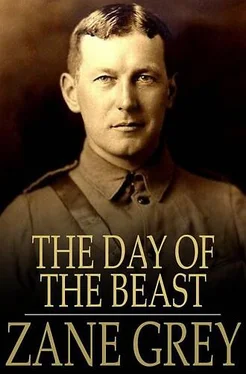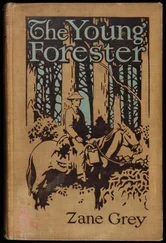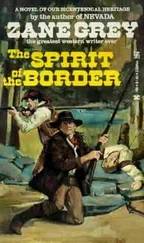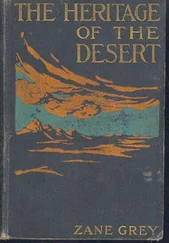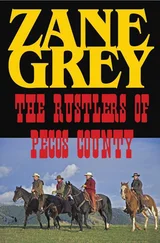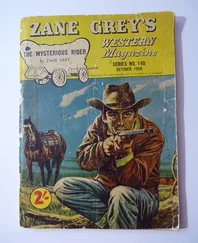Zane Grey - The Day of the Beast
Здесь есть возможность читать онлайн «Zane Grey - The Day of the Beast» весь текст электронной книги совершенно бесплатно (целиком полную версию без сокращений). В некоторых случаях можно слушать аудио, скачать через торрент в формате fb2 и присутствует краткое содержание. Жанр: Старинная литература. Описание произведения, (предисловие) а так же отзывы посетителей доступны на портале библиотеки ЛибКат.
- Название:The Day of the Beast
- Автор:
- Жанр:
- Год:неизвестен
- ISBN:нет данных
- Рейтинг книги:4 / 5. Голосов: 1
-
Избранное:Добавить в избранное
- Отзывы:
-
Ваша оценка:
- 80
- 1
- 2
- 3
- 4
- 5
The Day of the Beast: краткое содержание, описание и аннотация
Предлагаем к чтению аннотацию, описание, краткое содержание или предисловие (зависит от того, что написал сам автор книги «The Day of the Beast»). Если вы не нашли необходимую информацию о книге — напишите в комментариях, мы постараемся отыскать её.
The Day of the Beast — читать онлайн бесплатно полную книгу (весь текст) целиком
Ниже представлен текст книги, разбитый по страницам. Система сохранения места последней прочитанной страницы, позволяет с удобством читать онлайн бесплатно книгу «The Day of the Beast», без необходимости каждый раз заново искать на чём Вы остановились. Поставьте закладку, и сможете в любой момент перейти на страницу, на которой закончили чтение.
Интервал:
Закладка:
With that she raised her eyes to Lane's. He tried to read her mind, and realized that if he failed it was not because she was not baring it. Dropping his own gaze, he pondered. The girl's response to his earnestness was intensely thought-provoking. No matter how immodestly she was dressed, or what she had confessed to, or whether she had really expected and desired dalliance on his part—here was the truth as to her hidden yearning. The seething and terrible Renaissance of the modern girl seemed remarkably exemplified in Bessy Bell, yet underneath it all hid the fundamental instinct of all women of all ages. Bessy wanted most to be loved. Was that the secret of her departure from the old-fashioned canons of modesty and reserve?
“Bessy,” went on Lane, presently. “I've heard my sister speak of Rose Clymer. Is she a friend of yours, too?”
“You bet. And she's the square kid.”
“Lorna told me she'd been expelled from school.”
“Yes. She refused to tattle.”
“Tattle what?”
“I wrote some verses which one of the girls copied. Miss Hill found them and raised the roof. She kept us all in after school. She let some of the girls off. But she expelled Rose and sent me home. Then she called on mama. I don't know what she said, but mama didn't let me go back. I've had a hateful old tutor for a month. In the fall I'm going to private school.”
“And Rose?”
“Rose went to work. She had a hard time. I never heard from her for weeks. But she's a telephone operator at the Exchange now. She called me up one day lately and told me. I hope to see her soon.”
“About those verses, Bessy. How did Miss Hill find out who wrote them?”
“I told her. Then she sent me home.”
“Have you any more verses you wrote?”
“Yes, a lot of them. If you lend me your pencil, I'll write out the verse that gave Miss Hill heart disease.”
Bessy took up a book that had been lying on the seat, and tearing out the fly-leaf, she began to write. Her slim, shapely hand flew. It fascinated Lane.
“There!” she said, ending with a flourish and a smile.
But Lane, foreshadowing the import of the verse, took the page with reluctance. Then he read it. Verses of this significance were new to him. Relief came to Lane in the divination that Bessy could not have had experience of what she had written. There was worldliness in the verse, but innocence in her eyes.
“Well, Bessy, my heart isn't much stronger than Miss Hill's,” he said, finally.
Her merry laughter rang out.
“Bessy, what will you do for me?”
“Anything.”
“Bring me every scrap of verse you have, every note you've got from boys and girls.”
“Shall I get them now?”
“Yes, if it's safe. Of course, you've hidden them.”
“Mama's out. I won't be a minute.”
Away she flew under the trees, out through the rose bushes, a white, graceful, flitting figure. She vanished. Presently she came bounding into sight again and handed Lane a bundle of notes.
“Did you keep back any?” he asked, as he tried to find pockets enough for the collection.
“Not one.”
“I'll go home and read them all. Then I'll meet you here to-night at eight o'clock.”
“But—I've a date. I'll break it, though.”
“With whom?”
“Gail and a couple of boys—kids.”
“Does your mother know?”
“I'd tell her about Gail, but that's all. We go for ice cream—then meet the boys and take a walk.”
“Bessy, you're not going to do that sort of thing any more.”
Lane bent over her, took her hands. She instinctively rebelled, then slowly yielded.
“That's part of our bargain?” she asked.
“Yes, it certainly is.”
“Then I won't ever again.”
“Bessy, I trust you. Do you understand me?”
“I—I think so.”
“Daren, will you care for me—if I'm—if I do as you want me to?”
“I do now,” he replied. “And I'll care a thousand times more when you prove you're really above these things.... Bessy, I'll care for you as a friend—as a brother—as a man who has almost lost his faith and who sees in you some hope to keep his spirit alive. I'm unhappy, Bessy. Perhaps you can help me—make me a little happier.... Anyway, I trust you. Good-bye now. To-night, at eight o'clock.”
Lane went home to his room and earnestly gave himself up to the perusal of the writings Bessy Bell had given him. He experienced shocks of pain and wonder, between which he had to laugh. All the fiendish wit of youthful ingenuity flashed forth from this verse. There was a parody on Tennyson's “Break, Break, Break,” featuring Colonel Pepper's famous and deplorable habit. Miss Hill came in for a great share of opprobrium. One verse, if it had ever come under the eyes of the good schoolteacher, would have broken her heart.
Lane read all Bessy's verses, and then the packet of notes written by Bessy's girl friends. The truth was unbelievable. Yet here were the proofs. Over Bessy and her friends Lane saw the dim dark shape of a ghastly phantom, reaching out, enfolding, clutching. He went downstairs to the kitchen and here he burned the writings.
“It ought to be told,” he muttered. “But who's going to tell it? Who'd believe me? The truth would not be comprehended by the mothers of Middleville.... And who's to blame?”
It would not do, Lane reflected, to place the blame wholly upon blind fathers and mothers, though indeed they were culpable. And in consideration of the subject, Lane excluded all except the better class of Middleville. It was no difficult task to understand lack of moral sense in children who were poor and unfortunate, who had to work, and get what pleasures they had in the streets. But how about the best families, where there were luxurious homes, books, education, amusement, kindness, love—all the supposed stimuli needed for the proper guidance of changeful vagrant minds? These good influences had failed. There was a greater moral abandonment than would ever be known.
Before the war Bessy Bell would have presented the perfect type of the beautiful, highly sensitive, delicately organized girl so peculiarly and distinctively American. She would have ripened before her time. Perhaps she would not have been greatly different in feeling from the old-fashioned girl: only different in that she had restraint, no deceit.
But after the war—now—what was Bessy Bell? What actuated her? What was the secret spring of her abnormal tendencies? Were they abnormal? Bessy was wild to abandon herself to she knew not what. Some glint of intelligence, some force of character as exceptional in her as it was wanting in Lorna, some heritage of innate sacredness of person, had kept Bessy from the abyss. She had absorbed in mind all the impurities of the day, but had miraculously escaped them in body. If her parents could have known Bessy as Lane now realized her they would have been horrified. But Lane's horror was fading. Bessy was illuminating the darkness of his mind.
To understand more clearly what the war had done to Bessy Bell, and to the millions of American girls like her, it was necessary for Lane to understand what the war had done to soldiers, to men, and to the world.
Lane could grasp some infinitesimal truth of the sublime and horrible change war had wrought in the souls of soldiers. That change was too great for any mind but the omniscient to grasp in its entirety. War had killed in some soldiers a belief in Christ: in others it had created one. War had unleashed the old hidden primitive instincts of manhood: likewise it had fired hearts to hate of hate and love of love, to the supreme ideal consciousness could conceive. War had brought out the monstrous in men and as well the godlike. Some soldiers had become cowards; others, heroes. There were thousands of soldiers who became lions to fight, hyenas to snarl, beasts to debase, hogs to wallow. There were equally as many who were forced to fight, who could not kill, whose gentleness augmented under the brutal orders of their officers. There were those who ran toward the front, heads up, singing at the top of their lungs. There were those who slunk back. Soldiers became cold, hard, materialistic, bitter, rancorous: and qualities antithetic to these developed in their comrades.
Читать дальшеИнтервал:
Закладка:
Похожие книги на «The Day of the Beast»
Представляем Вашему вниманию похожие книги на «The Day of the Beast» списком для выбора. Мы отобрали схожую по названию и смыслу литературу в надежде предоставить читателям больше вариантов отыскать новые, интересные, ещё непрочитанные произведения.
Обсуждение, отзывы о книге «The Day of the Beast» и просто собственные мнения читателей. Оставьте ваши комментарии, напишите, что Вы думаете о произведении, его смысле или главных героях. Укажите что конкретно понравилось, а что нет, и почему Вы так считаете.
